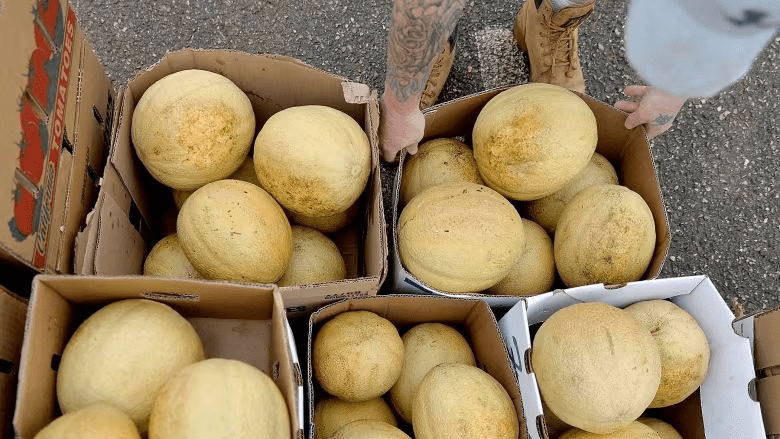
Freshly picked cantaloupes are pictured in Hagerstown, Md., on Aug. 13, 2020. (Colleen McGrath/The Herald-Mail/The Associated Press)
The Public Health Agency of Canada has confirmed a sixth death related to a salmonella outbreak connected to the consumption of contaminated cantaloupes. As of now, there have been 153 lab-confirmed cases, with 53 people hospitalized. The outbreak has been linked to Malichita and Rudy brand cantaloupes, sold between October and November. Many affected individuals were either adults in long-term care facilities and retirement homes or children in daycare.
April Hexemer, director of the outbreak management division at PHAC, noted that the outbreak has seen more cases than typically observed in a salmonella investigation. Salmonella is commonly associated with raw or undercooked chicken but can also be found in raw fruits and vegetables. While most people recover in a few days, severe cases can occur.
The current outbreak extends beyond Canada, affecting numerous people across U.S. states. The contaminated cantaloupes, sold in October and November, are linked to the Malichita or Rudy brands. The recalled Malichita cantaloupe was sold in Canada between October 11 and November 14, and the Rudy brand fruit was sold from October 10 to November 24.
Consumers are advised not to buy, eat, or sell cantaloupe distributed by Malichita or Rudy. The PHAC has issued separate recalls for other fruits, including honeydew, pineapple, watermelon, and assorted fruit trays. Individuals are urged to check their refrigerators and freezers for recalled items and discard them.
The U.S. Centers for Disease Control and Prevention is also investigating a similar outbreak, with cantaloupes carrying the same salmonella strain causing sickness in 230 people across 38 states. Three deaths have been reported in the U.S. Symptoms of salmonella infection include fever, chills, nausea, vomiting, diarrhea, and headaches, with severe cases more likely in young children, seniors, and those with compromised immune systems.
Meanwhile, Mexico's government temporarily closed a cantaloupe processing plant in Sonora, investigating its connection to the salmonella outbreaks in Canada and the U.S. The contamination issue underscores the need for vigilance in monitoring and discarding recalled items to prevent further illness.















